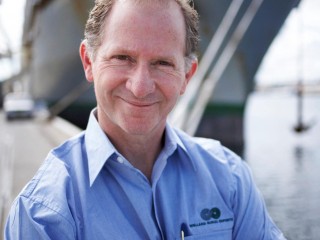 Australia’s largest live cattle exporter, Wellard Rural Exports, says an unusually busy global stock movement period is partly responsible for some recent problems in timely payment for livestock destined for overseas markets.
Australia’s largest live cattle exporter, Wellard Rural Exports, says an unusually busy global stock movement period is partly responsible for some recent problems in timely payment for livestock destined for overseas markets.
It’s been no secret around the northern Australian cattle industry recently that Wellard has been behind in meeting livestock payment terms – sometimes by as much as two or three weeks, sources suggest.
While nobody Beef Central spoke to interpreted the slow payment pattern to suggest that Wellard might be in financial difficulty, there was a general underlying concern that the company was using livestock suppliers’ money to finance its activities.
Beef Central approached Wellard managing director Steve Meerwald about the issue on Friday, and he proved more than happy to provide a detailed explanation.
In simple terms, it appears the company went from an almost standing start when the Indonesian trade resumed to being squeezed by an unusually congested sequence of large livestock movements around the world, which severely strained its credit resources.
“The unfortunate reality is we recently had something like 37,000 beef and dairy cattle all on the water at the same time,” Mr Meerwald said.
That was spread between the company’s export of dairy cattle out of the US into Turkey, southern Australian dairy cattle into China out of Victoria, and beef feeder cattle out of northern Australia.
Since loading 18,000 of its own cattle on the Ocean Shearer shipment for Indonesia in mid-September, Wellard had since loaded the 6000-head Ocean Swagman, and had the Swagman re-loading in Townsville this week.
In parallel with this shipping activity, Wellard was also building up its ‘floodplain’ cattle in the Northern Territory designed to provide an assured supply of live export stock during the northern monsoon wet season, and was trading cattle and sheep in southwestern WA.
In total, the livestock value added up to $65-$70 million.
Mr Meerwald said in the case of the Indonesian trade, the company’s resources had gone from being severely depleted, to being stretched in a matter of weeks.
“Where historically we have seen a fairly regular flow of shipments to Indonesia, since the live cattle trade re-activated after the suspension, we have had to start from scratch, with a flurry of concentrated shipment of activity.”
“Additionally, unlike the supply side payment contract terms which are very finite, the import side is much more complex – it can involve small deposits, advance payments and shipment payments right through to a legacy.”
At the same time the global trend towards caution in the financial marketplace had meant that everything Wellards did with the banks – from simple letters-of-credit transactions to trade finance – was now much more complicated.
Matters that once took a day to resolve could now take a week, and those that took a week now took a month.
As a result of the recent financial and regulatory pressures, Wellard has been talking to its bankers, arranging for interim facilities, but these had taken longer to come through than anticipated.
Mr Meerwald said the company was aware of some concern in the bush over the payment delays issue, and had been dealing with livestock procurements on a ‘day-to-day basis.’
“The message we have sent to our staff is to be proactive, and keep talking to suppliers to keep them advised, if the time-frame looks like lapsing.”
He said the problem was something that would be rectified soon.
“The scope of the Wellard business is now significantly different from what it was a couple of years ago, and we are working with our bankers to restructure some of the financial capacities within the business.”
“We’re a business that tends to seek the best opportunity in trading, and then work hard to make it happen. Generally speaking, we do make it happen (financially), but this time, due to the unusual set of circumstances, we got caught on the hop,” he said.
“I can’t say that we have caught up with outstanding commitments this week, but I think we will be fairly close,” Mr Meerwald said on Friday. “If we haven’t, then everything will be back up to date by the end of next week.”
He suggested the payment issue related to clients of private agents supplying cattle to Wellard, rather than those of Elders/Landmark, which had the ‘financial resources’ to carry Wellard for short periods as a debtor.
“We want to support the private agents, they play an important role in our cattle procurement, but if there is any lag in promptness of payment it tends to have a more immediate impact through them,” he said.
Wellard has recently appointed a chief financial officer who would add ‘horsepower’ in financial matters for a business which now turns over $500 million each year.
-
See today's separate story: "Exporter sees strong future for live trade"
